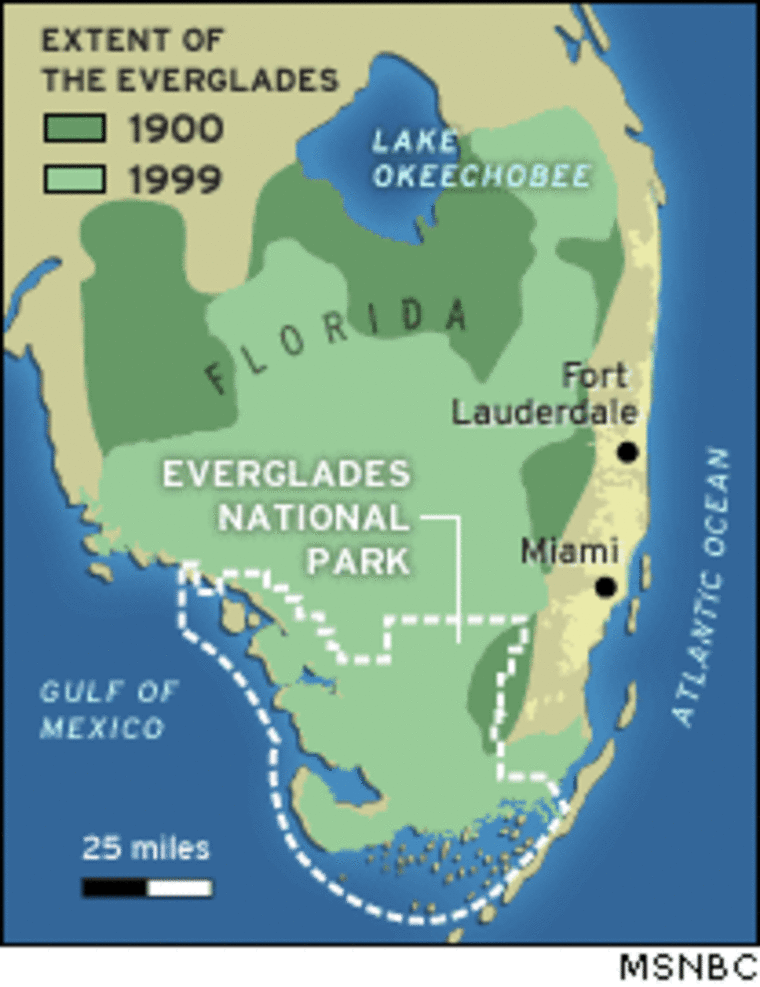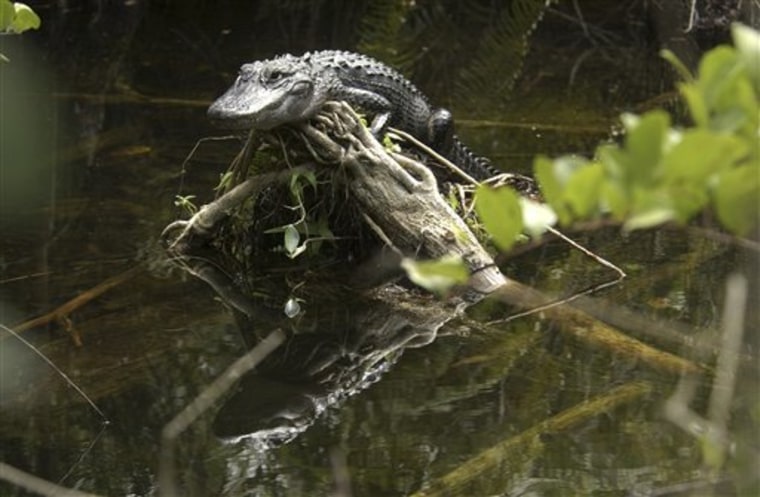Florida's proposed purchase of thousands of acres of farmland from U.S. Sugar Corp. to restore the Everglades would be jeopardized if a federal judge forces the state to resume construction on a huge reservoir, state attorneys said in court Tuesday.
The Miccosukee Indian Tribe, which considers the Everglades its ancestral home, wants U.S. District Judge Federico Moreno to order work to continue on a planned 25-square-mile reservoir considered a key to cleaner water in the vast wetlands.
But the Florida state attorneys said the estimated $300 million cost of the next phase of the massive reservoir work in western Palm Beach County might make it difficult for the state to finance the planned $1.75 billion, 187,000-acre sugar land buy.
"Our ability to close that deal would be impaired," said Kirk Burns, attorney for the South Florida Water Management District.
Lawyers for several environmental groups agreed, telling Moreno at a hearing that the planned U.S. Sugar purchase represents a once-in-a-generation chance to rescue the Everglades.
Sugar farms and other agricultural interests are blamed for decades of damage to the "River of Grass" because of fertilizer and other contaminants.
"The ability to acquire this piece of property is really monumental," said Thom Rumberger, attorney for the Florida Audubon Society.
Moreno has authority over Everglades work because of a 20-year-old lawsuit that was root of the multibillion-dollar restoration effort.
The Miccosukees' attorney, Dexter Lehtinen, questioned what might happen if the U.S. Sugar deal falls through, and yet the reservoir remains stalled.
"They've already started it. The bulldozers are sitting there," Lehtinen said. "Delay is the enemy of the Everglades. You don't come back from being poisoned."

Burns and other Florida attorneys said the main reason construction was halted on the reservoir was the possibility that its permits would be revoked due to a separate lawsuit pending before another federal judge. That case involves the legal uses of the proposed reservoir's water.
But the state lawyers also said they may not resume the project at all if the U.S. Sugar transaction closes as planned in four or five months — even though the work has already cost some $200 million. Instead, it might be relocated to the sugar lands, which would be a better place from which to manage water flows into the Everglades.
"We can reconfigure the location of the reservoir," Burns said.
Moreno did not issue an immediate decision and did not indicate when he would rule.
The judge has previously found violations of court orders mandating certain reductions in phosphorous levels in the Everglades, but state officials have insisted they are doing all they can do to comply.
"We have stayed on track. We're going to continue to stay on track," said Charles DeMonaco, attorney for the state Department of Environmental Protection.
